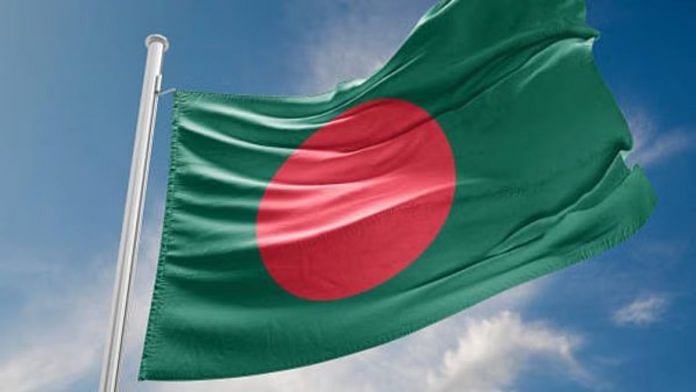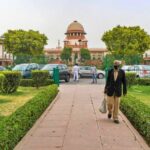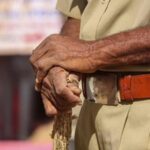Despite the ban, the HT’s posters asking the Bangladesh Army to take over power can be seen all over Dhaka. We’ve repeatedly tried to contact the outfit’s leadership on social media regarding their activities, but no response was received.
HT’s name was pasted on the walls of the country’s capital even when Sheikh Hasina was in power and the so-called “War on Terror” was at its peak. After the ouster of Hasina in a mass upsurge, the appeal to the army to launch a coup has come back in full vigour.
There are two strange things about this phenomenon— during Hasina’s rule, opposition activists were arrested left and right, so much so that, , millions faced trial on politically motivated charges trumped up by her regime. But not a single member of the HT has been known to be arrested during the last 10 years of Awami League rule, nor has the government done anything to ideologically fight the outfit.
The situation hasn’t changed even after the Gen-Z Revolution. It is indeed deeply disturbing that the interim government led by Muhammad Yunus appears to have no clue whatsoever about the origins of the posters, as to where they are published, who puts them on the walls of Dhaka, where CCTV cameras are almost in front of all the apartment buildings. What is more disconcerting is the HT’s call for the army to take over power at a time when Bangladesh looks forward to peace and stability, especially when the army is deployed all over the country to help the police establish law and order.
One of the reasons why the subsequent governments and the military establishment have turned a blind eye to the HT’s activities is the group’s possible infiltration in the armed forces and the law-enforcing agencies. And won’t be a surprise if these intrusions reached the higher echelons of the said institutions. The HT is accused of being involved in coup attempts in five countries—Jordan, Syria, Egypt, Tunisia, and Iraq.
Bangladesh’s security establishment has to find out the HT cells that are thought to be working in different public and private universities across the capital. Bangladesh army and the country’s spy agency, the Directorate General of Forces Intelligence (DGFI), need to run an internal investigation to find out the length and breadth of the HT infiltration into the forces. This is especially important because the HT’s declared modus operandi is to come to power through a coup d’état. And it’s only natural that the group will work vigorously in places where the likely putsch will take place—the cantonments.
There is no denying that the Yunus government’s performance in this regard is no less than shambolic. The fragrant disregard of the HT to its banning by carrying out one procession after another in downtown Dhaka is a slap in the face for the administration. Instead of taking it on the chin and moving on, the Yunus administration should go all hog and unearth the group’s backers—civil, military, or otherwise—and bring them before justice.
Failure to do so will make us question the civil and military administration’s sincerity in fighting this banned outfit. What Bangladesh cannot afford is a military coup, especially not the kind that can take Bangladesh back to the Stone Age.
Yunus has to go strong on all Al Qaeda and ISIS sympathisers. Hasina’s ouster has brought freedom to all Bangladeshis, but not for those who stand against the very idea of Bangladesh itself. The sooner Yunus and his advisers understand that, the better.
Ahmede Hussain is a Bangladeshi writer and journalist. He is the editor of “The New Anthem: The Subcontinent in Its Own Words” (Tranquebar Press; Delhi). He has just finished writing his first novel. He tweets @ahmedehussain. Views are personal.
(Edited by Ratan Priya)








